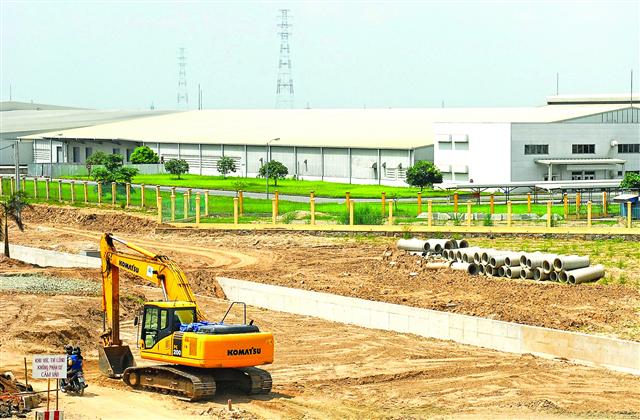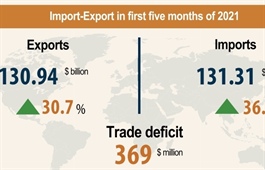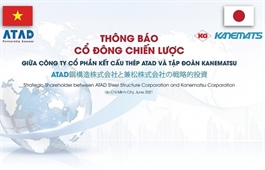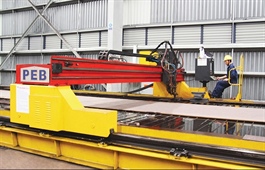Quang Ngai eyes shift from public to private IP investment
Quang Ngai eyes shift from public to private IP investment
The south central coastal province of Quang Ngai is seeking to overcome difficulties in development of industrial park (IP) infrastructure by shifting from the current district people’s committee investor model to an enterprise investor model.

Quang Ngai is improving IP infrastructure to attract businesses
|
Difficult diversification of investment sources
Quang Ngai is home to 23 IPs totaling 401 hectares in area, 18 of which have installed infrastructure and attracted production and trading projects. From 2002-2020, almost VND371 billion was invested in infrastructure development in the parks, which attracted 129 production and trading projects during that period.
The province provides preferential policies and allocates funding for IP infrastructure development.
However, the province is encountering difficulties in industrial zone infrastructure development as most of the investors in IPs are district people's committees, which are short of capital. IP infrastructure development is usually costly and the investment recovery time is long, making it difficult to attract business investors. In 2020, only one enterprise registered to become an IP infrastructure investor in the province.
According to the Quang Ngai Province Department of Industry and Trade, the vast majority of enterprises in the province are medium, small or super small in size, with very few financially strong enough to invest in IP infrastructure. With limited budgets, most localities are also unable to provide the required matching capital for projects benefitting from national industry promotion funding.
Large-scale projects prioritized
The Quang Ngai Province People's Committee has asked the provincial Department of Industry and Trade to work with relevant units in reviewing planned industrial zones and deleting unsuitable ones from the development investment list, giving priority to large-scale IP projects. The provincial people’s committee is also asking the department to consider planning industrial zones by groups and industries to improve management and operations and attract additional investment to IPs, and to weigh a shift from the current district people’s committee investor model to an enterprise investor model.
The department will list operational IPs with inadequate infrastructure as facilities needing medium-term provincial capital and funding from local capital sources, build lists of IP projects needing investment capital from enterprises, prepare plans to attract investment in IP infrastructure construction, and lure production and trade projects to provincial industrial zones.
The department has proposed that the Agency for Regional Industry and Trade (ARIT) provide assistance for industrial zones in struggling districts, helping them develop infrastructure and attract production and trading projects. The department also proposes that the ARIT extend the capital disbursement period of IP infrastructure investment to the subsequent year, giving project developers more time to accomplish their projects.
























